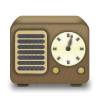Community Media/Workshops/Facilitation tools
Contents
Facilitation Formats & Tools
(![]() : This page is a work-in-progress ~ please share your ideas (in alphabetical order)!)
: This page is a work-in-progress ~ please share your ideas (in alphabetical order)!)
Circles
in which ALL participants sit or stand in a circle, bring everyone together as a group; this is especially important at the start and end of each day; circles are used for introductions, checking-in with people, housekeeping announcements, Q&A, and sharing short, closed-ended ideas and experiences.
Clinic
a format used to match needs to resource persons; individuals identified problem areas using post-it notes, which the facilitators then clustered them to reveal priorities and identified good resource people to lead small group sessions.
Lecturette
a short talk (5-10 minutes) to explain or describe a concept, define terms, or give background to a subject. The idea is to recognize that sometimes information is best delivered this way to save time, or lead up to an activity ~~ but talking for more than 10-15 minutes can quite easily turn into a lecture (talking head) and losing your audience quickly.
Media
are an important and generally under-utilised format during workshops. People pay far more attention if discussions are streamed or broadcast on internet and or radio; documenting with video and still photography is also extremely effective and also helps to keep people active. If local media groups are interested to cover the event, try to integrate it into the workshop, for example, turn it into a panel discussion or a roundtable that can be broadcast or used for sound bytes.
Mind-Map
From Wikipedia: "A mind map is a diagram used to represent words, ideas, tasks, or other items linked to and arranged radially around a central key word or idea. Mind maps are used to generate, visualize, structure, and classify ideas, and as an aid in study, organization, problem solving, decision making, and writing." For more, read the entire Wikipedia article.
Marketplace
The marketplace -- better known as speed geeking -- is a fun and productive format in which a set number of presenters simultaneously pitch their project or experience while the other participants rotate in small groups through the different presentations. Some advantages: It gets people up and moving, it's exciting and high energey. It is a great way to share good practices and get participate to share experiences they are proud of and want to sell to others. Over the course of 30-45 minutes, participants are exposed to a handful of different ideas (between 3 and 6 works well in COL's experience). As a workshop format, COL came to know about it from Aspiration Tech as Speed Geeking, a play on speed dating.
Rapid fire presentations
Individual participants or group representatives do brief, timed (2-3 minutes) presentations about their organisation and work; they should be prepared in advance but generally with minimal or no slide presentations.
Post-its
Individuals (or group representatives) reflect and then post their ideas about a particular topic on "sticky notes". discussing and positioning the notes in relation to each other is a good way to catalogue ideas and start to build clusters and linkages.
Spectrogram
an active exercise that requires participants to literally “take a stand” on a given issue, framed in a statement, e.g. "The classroom is a better educational environment than a radio programme"; participants place themselves physically on a spectrum of opinion, from full agreement to full disagreement and then explain their perspectives and try to influence others to shift their own positions.
Small group work
breakout groups are an excellent way to get people working together in small teams, discussing ideas and producing plans/materials on their chosen area; for workshops, it is generally a good idea to keep the same groups as frequent interaction and cooperation builds team spirit, which is often a key output.
(![]() : About these Formats & Tools)
: About these Formats & Tools)
Formats inspired and adapted from a range of sources – especially the work of Allen Gunn of Aspiration – used in a Workshop on Media for Learning in St Vincent & the Grenadines, November 2008
